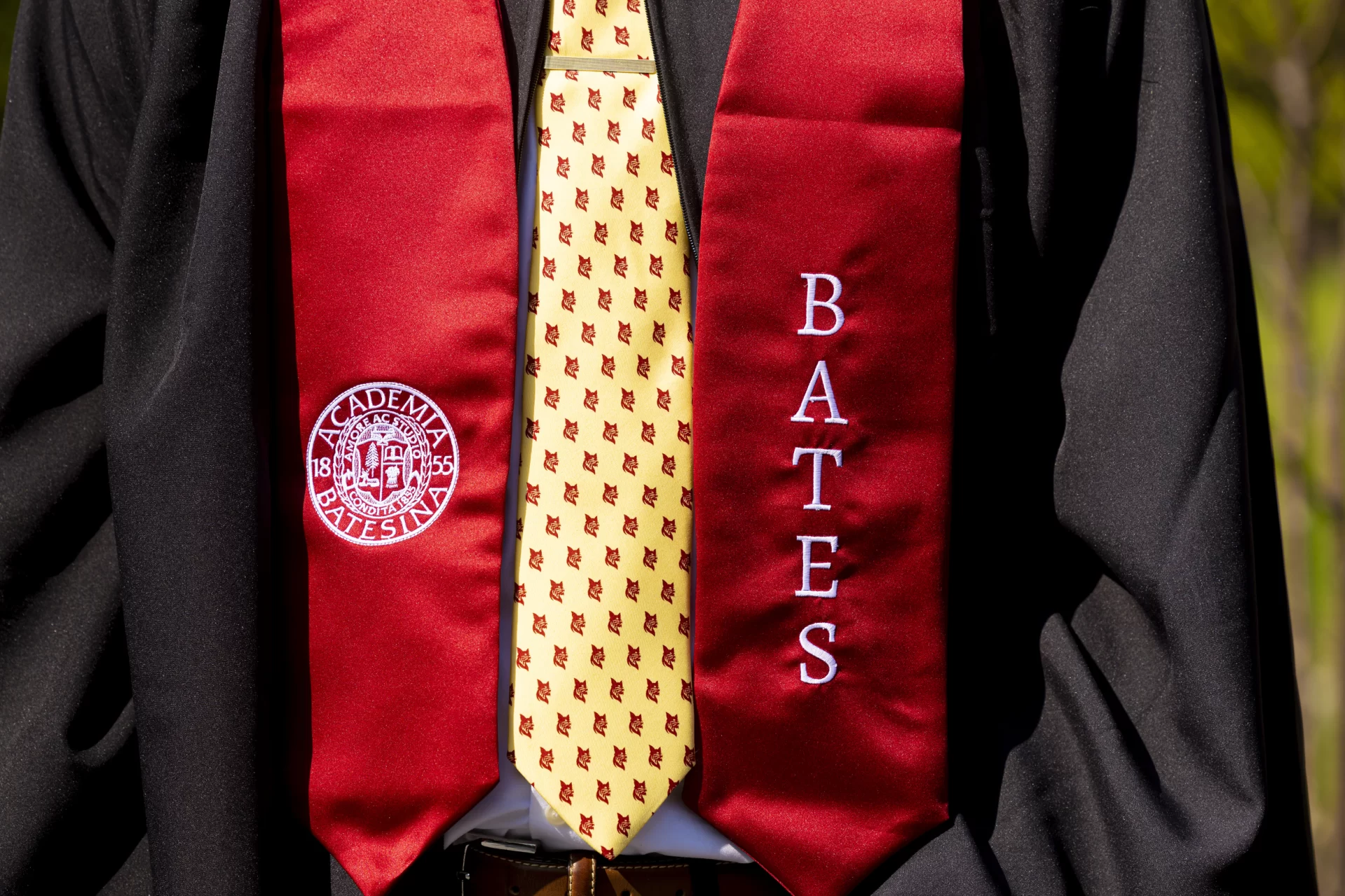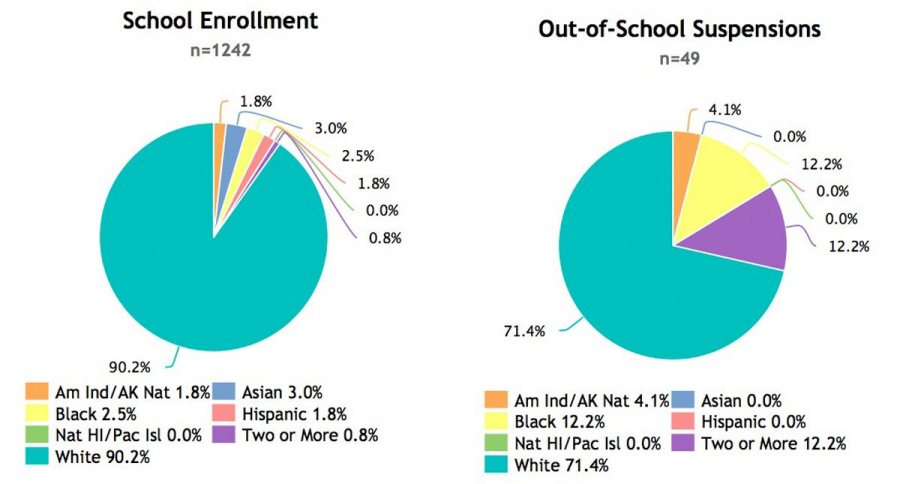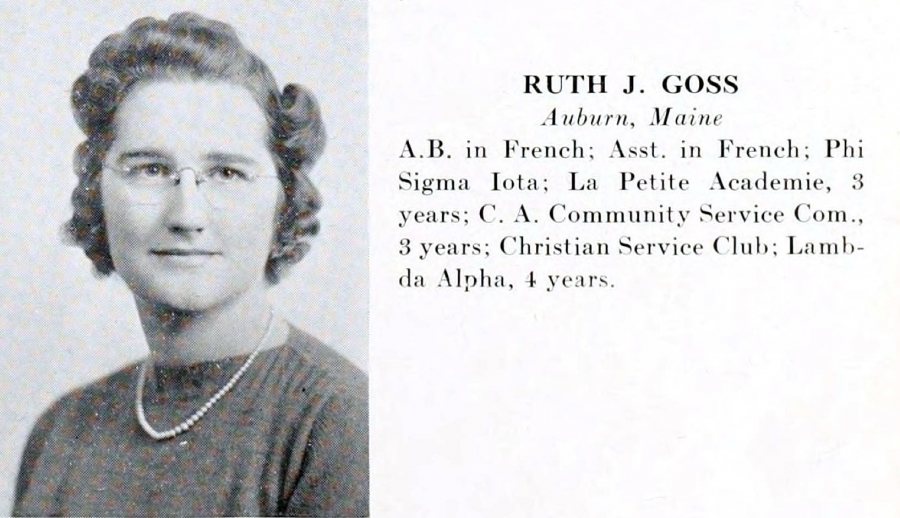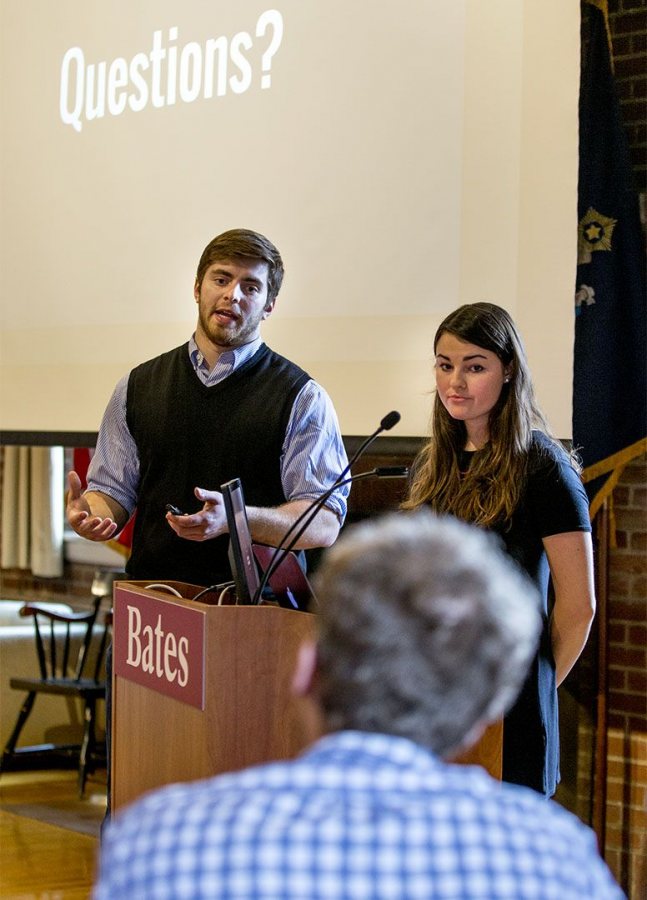
Bates in the News: April 8, 2016
Michael Rocque
Do black students really misbehave more? — Bangor Daily News
Continuing a year of forceful Bates commentary on issues of race and mass incarceration, Assistant Professor of Sociology Michael Rocque’s op-ed column in the Bangor Daily News criticizes U.S. public schools for taking the kind of “similar punitive turns” that the American criminal justice system has since the 1970s.
“Similar to the criminal justice system, stark disparities, particularly with respect to race, exist in school discipline,” Rocque writes.
At Bangor High School, for example, blacks represent 2.5 percent of the student body, yet “12 percent of all suspensions…are black students,” Rocque writes.
Do black students really misbehave more than their fellow students? Current research “tends to suggest not,” he writes.

At Bangor High School, black students represent 2.5 percent of the student body but account for 12 percent of out-of-school suspensions, according to the U.S. Department of Education’s Civil Rights Data Collection.
Rather, the numbers suggest that Bangor, like other U.S. education systems, has made a troubling “turn toward mass punishment,” where there’s “less [concern] with individual treatment,” he writes, and more focus on “rhetoric and strategies like ‘three strikes and you’re out’ and ‘zero-tolerance.'”
Those approaches “look good on paper but have failed in application.”
More important, he concludes, “we need to have a broader conversation about why our society in general has turned to exclusionary methods of control instead of more inclusive, reintegrative approaches.”
Bates Admission
Radical new ways colleges are sizing up students — TIME magazine (paywall)
TIME magazine reporter Eliza Gray quotes Dean of Admission and Financial Aid Leigh Weisenberger and Bates President Clayton Spencer in a story about “a major shift in the hypercompetitive, overstressed world of college admissions,” namely, allowing students to share their creative voices in the medium of choice, which usually is digital.

Dean of Admission and Financial Aid Leigh Weisenburger.
Bates and nearly 100 peer schools, including the Ivy League, have formed the Coalition for Access, Affordability and Success, whose aim, Gray writes, “is to increase economic and racial diversity on campus, and to make the application process more relevant and less frenzied.”
“For us, it is about keeping up with the student population and the way they live their lives.”
For one, the coalition will launch a “proprietary application process that will encourage earlier preparation and creative materials,” like personal videos and digital portfolios. (Bates will introduce the optional process in 2017).
Weisenburger tells Gray that “for us, it is about keeping up with the student population and the way they live their lives….They do it in technology.”
The coalition also plans to launch free online tools “designed to help lower-income students plan for college earlier and narrow the gap with their more privileged peers.”
Spencer speaks to concerns that any change in the admission process will be leveraged by the wealthy applicants. “What you don’t want is highly produced TED talks from privileged kids,” says Spencer. “All of these things are potential expanders of access, and all of them have to be regarded critically.”
Bates has a long history of trying to maintain a level playing field in admission.
In 1990, the college dropped standardized test requirements because it believed, and later was able to prove, that standardized tests are less effective predictors of college success than an applicant’s high school transcript and, worse, tend to narrow student access to higher education.
Ruth Goss Leavitt ’41
Turner honors oldest resident with coveted cane — Lewiston Sun Journal
Ruth Goss Leavitt ’41, age 97, is the new holder of the Boston Post Cane in Turner, Maine.
If you’re a New Englander of a certain age, you know exactly what that means. If not, here’s the quick explanation.

The entry for Ruth Goss Leavitt ’41 in the 1941 Mirror yearbook. (Muskie Archives and Special Collections Library)
In 1909, the Boston Post newspaper gave handsome, inscribed canes to a few hundred New England towns, asking each town leader to give the cane to the town’s oldest man. Thus a tradition was born (women were included in 1930), as the towns ceremoniously presented their cane to each successive senior-most citizen.
The Sun Journal asked Leavitt if there is a secret to her longevity. “Not really. I’ve just taken life as it comes.”
Bates Mail
Gone are mailboxes but not the excitement of mail call — The Boston Globe
Last week’s Boston Globe‘s story about the college’s move away from traditional mailboxes featured alumni from the 1970s to the 1990s talking about the glory days of Bates mailboxes and mail from home.
Reporter Laura Krantz tells about the Chase Hall mailbox belonging to Steven Girvin ’71, today the Eugene Higgins Professor of Physics and Applied Physics at Yale.
Then, writes Krantz, “he said yes to a blind date in 1969 with a girl from Lewiston. After that date (and a few more), the box began to fill with love letters from the woman who became his wife.”
The Bates package center “hums with eager expectation.”
Today, the emotion, angst, and excitement of mail call happens at the college’s package center in Chase Hall, a space once home to Dining Services’ recycling operation.

The postman rings rarely for the mailboxes in Chase Hall. Instead, the excitement is in the package center. (Sarah Crosby/Bates College)
The center “hums with eager expectation,” writes Krantz, “as students queue — sometimes 40 at once — to retrieve care packages from home, Amazon deliveries, and other boxes.”
This fall, Bates will open a new Post and Print Center, including a package center, in one of the new residence halls on Campus Avenue. (To the curious: No decision has been made about the fate of the old mailboxes.) While the new center will be sans mailboxes, the space where students receive packages will be welcoming and well-appointed.
Bobcat Ventures
Student entrepreneurship club holds $11,000 pitch competition — Lewiston Sun Journal
“I think there’s a perception liberal arts students can’t be entrepreneurs,” Creighton Foulkes ’17 tells Kathryn Skelton of the Lewiston Sun Journal. “We want to spread the message that it is possible and it can be done and help give them the tools to do it.”

As judge Ross Brockman ’11 listens, Julia Grace ’17 of Chevy Chase, Md., and Sean Antonuccio ’17 of Las Vegas pitch HouseCat, a platform to connect NESCAC students looking for summer housing. (Phyllis Graber Jensen/Bates College)
Foulkes, a leader of Bobcat Ventures, spoke to Skelton during the club’s $11,000 pitch competition on April 2.
Nima Olumi ’17 of Newton, Mass., won first place of $7,500 with his startup Lightyear Strategies, a marketing and branding company.
Second prize ($2,500) went to an idea for a campus smoothie cart, and third ($1,000) to a drone-based image production firm.
Funded by alumni and parent gifts, the competition was judged by:
- entrepreneur Daniel Vannoni ’05, founder of Housequarters and co-founder of other data-centric and healthcare start-ups in the Boston area;
- Ross Brockman ’11, co-founder of Downeast Cider House;
- Jack Keigwin ’59, a Bates trustee emeritus who built family-owned FH French Co. into a major commercial real estate firm in Rhode Island and became a entrepreneurship professor at Bryant College.




